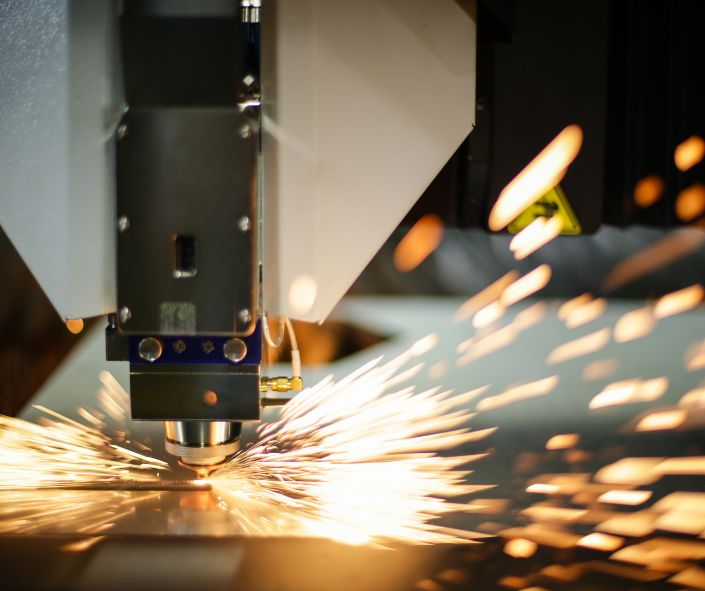Computer Numerical Control machining (CNC) has revolutionized engineering and manufacturing over the past few decades. CNC is a method that blends digital technology with traditional machining techniques to create precision components across a range of industries. This article will explore the mechanics, advantages, and numerous applications of CNC machine to show its transformational impact on modern engineering.
The mechanics of CNC Machining
CNC machining is a subtractive manufacturing technique that is, it takes the material from a solid block or workpiece in order to achieve the shape you want. The process is controlled by pre-programmed computer software that determines the movement of the machinery. The code used for CNC machines may differ based on the machine type and how complex the component is produced. The principle behind it is the same. A high-speed machine precisely shapes material in order to create the finished product.

Precision is the main benefit of CNC cutting. Digitalization allows for extremely accurate and reliable production. It reduces the risk of human error, and ensures the same quality of each batch. This level of precision is crucial in industries where even the slightest deviation can have major implications, like medical devices, aerospace manufacturing, and automotive.
The role of digital computers in CNC machine operation
The integration of digital technology is the foundation of CNC the precision and effectiveness of CNC. The software that is specifically designed for CNC machining automates all manufacturing processes. This software converts computer-aided design (CAD) models into a series of precise instructions, which the CNC machine then follows to create the part. These instructions define everything starting from the cut’s depth and the angle to the speed of the machine.
In industrial facilities with large scales, computers are usually connected directly to CNC machines. This makes it possible to communicate seamlessly and controls. This integration allows for real-time monitoring that ensures high performance and minimizes the time between maintenance. The automation of CNC machine tools also allow for continuous operation, greatly increasing productivity while reducing time to market.
CNC Machining: Its Benefits
CNC machining has numerous advantages over traditional manufacturing methods. Its capability to make intricate and complex parts that are precise is one of the most significant advantages. The precision of CNC machines eliminates the need to make manual adjustments or Rework, which reduces waste while increasing efficiency. Additionally, CNC machines can operate constantly, which makes them ideal for high-volume production runs.
CNC machine is also a flexible. With the option of changing the programming the machine is able to create many different components. This flexibility allows CNC the machine suitable for prototyping as well as mass production, allowing manufacturers to respond quickly to changing market demands.
Automation of CNC machines also increases safety at work. The chance of injuries and accidents is reduced by decreasing the need for manual intervention. CNC-machined products are also more reliable and perform better, which improves customer satisfaction.
CNC Machining Services: Benefits for Industries
The versatility, precision and efficacy of CNC machining can be found in numerous industries. CNC machines employed in aerospace manufacture parts that need to meet strict safety and performance standards. The medical device industry relies on CNC machine machining to make of sophisticated surgical instruments and implants, in which precision is crucial.
CNC machining is used in the automotive industry for making parts for transmissions, engine components as well as intricate exteriors and interiors. Electronics also benefit from CNC Machining, which is able to make small, intricate pieces for consumer electronic and communication devices. The art and jewelry industries use CNC technology to create intricate designs and custom pieces.
The Future of CNC Machining
CNC machineries are expected to continue to expand as technology improves. Multi-axis processing and additive manufacturing integration will continue to push CNC technology’s limits. In addition, the continuous development of artificial intelligence and machine learning is likely to improve the efficiency and precision of CNC machine processes.
In conclusion, CNC machining has profoundly affected modern manufacturing and engineering providing unbeatable precision, efficiency, and the ability to be flexible. Its ability to produce complex parts with a high degree of accuracy makes it an invaluable tool across various industries. CNC machining, as the technology advances will remain an essential component of manufacturing’s future.